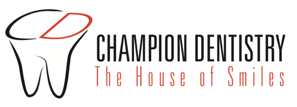The Truth About Chronic Dry Mouth and Its Effect on Oral Health
Blog The Truth About Chronic Dry Mouth and Its Effect on Oral Health
Chronic dry mouth is caused by many factors, including long-term medication use, chemotherapy treatments, and radiation therapy that damage the salivary glands' ability to produce saliva. In addition, certain diseases such as diabetes or Sjögren's syndrome can impact one's saliva production. Stressful situations can also decrease saliva production, making chronic dry mouth a reality for some.
Although it is not always uncomfortable or painful, chronic dry mouth can lead to oral health issues such as an increased risk of tooth decay and gum disease. Saliva is important in keeping teeth clean and healthy by washing away food debris and bacteria that cause plaque and dental caries. When saliva production is limited, it can be difficult for the mouth to cleanse itself of these threats.
Dry Mouth: Causes and Treatment
A dry mouth is a common condition resulting from certain medical conditions, medications, and lifestyle habits. It can be uncomfortable and lead to other oral health issues if it isn't addressed. Here are six possible causes of dry mouth and some treatment options for each:
1. Medical Conditions:
Certain conditions like diabetes, Sjogren's Syndrome, Parkinson's Disease, and others can cause dry mouth. Treating the underlying medical condition is important to find relief from dry mouth.
2. Medications:
Many medications, including those for allergies, depression, pain relief, and high blood pressure, have the side effect of causing dry mouth. If so, talk to your doctor about changing medications or adjusting the dosage.
3. Stress:
Stress can contribute to dry mouth because it leads to shallow breathing and an inability to saliva production. If stress is causing dry mouth, try relaxation techniques such as yoga or meditation.
4. Dehydration:
When we don't drink enough water, it can cause our bodies to produce less saliva. Try drinking more water throughout the day and reducing your intake of caffeine and alcohol.
5. Smoking:
Smoking affects our body's ability to make saliva, leading to dry mouth. Consider quitting smoking to reduce the effects of dry mouth and improve your overall health.
6. Aging:
As we age, our bodies produce less saliva, which leads to dry mouth. Over-the-counter products, such as oral rinses and gels, can help relieve the effects of dry mouths.
To protect your oral health, keeping a dry mouth at bay is important. Drinking plenty of water throughout the day and avoiding caffeine and alcohol are both helpful habits that can help prevent dry mouth. Avoiding tobacco products also helps, as smoking can significantly reduce saliva production. Chewing sugarless gum and sucking on sugar-free candies can help to stimulate saliva production and keep the mouth moist for a short period.

